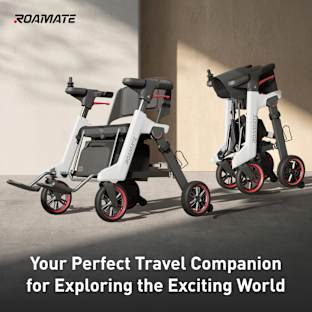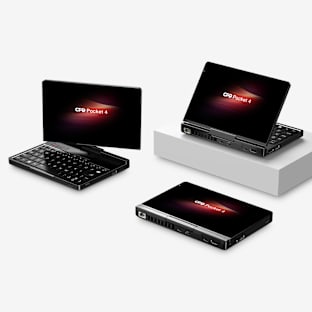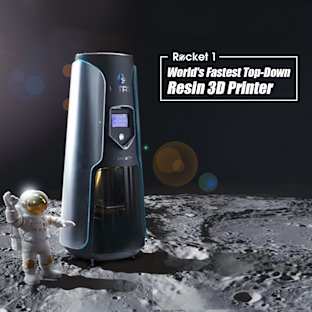Why are we fundraising?
Because people are suffering and dying that could be treated and saved through the organ transplantation technology we have developed. Anyone can be born with a disease or develop an illness, like diabetes or a virus, that could cause an organ to fail and require a transplant. ![]()
What if one day you, your sister, child, or best friend gets really sick and will die without a transplant. What if you have the option at that time to easily become a living donor by using our technology to save that persons life? Wouldn’t you want that opportunity? It seems far off and impossible, but needing an organ transplant happens to people just like you and me everyday. You can make a difference. You have the power at this moment to support both groundbreaking innovation and organ donation through this campaign.
If every person reading this would contribute just $5, we would exceed our goal and be able to advance the ARC project and start saving lives. Please take two minutes to
CONTRIBUTE NOW.
What is the ARC™?
![Arc]()
The ARC™ is an Antibody Removal Column developed by our company, Pure Transplant Solutions (PTS). It’s a medical device that uses human proteins and a special filter to selectively remove specific harmful antibodies from a transplant patient’s blood that would attack and later reject a transplanted organ. The ARC makes organ donation possible between two people, like best friends, that aren’t considered a good match.
How will the ARC™ help?
- More patients and organ donors will be “match-able”
- More transplants will be possible, even for the “highly sensitized”
- Fewer patients will need re-transplants
- Transplantation costs will go down (fewer complications and drugs)
- People will live longer since organ rejection episodes will decrease
- Quality of life will be better after a transplant (more effective anti-rejection therapy without creating secondary health conditions)
How does it work?
![]()
Single antigen specific proteins produced by PTS are loaded into a cartridge that, when blood plasma flows through it, remove the HLA antibodies that cause an adverse immune response. Essentially, a patient’s blood is “filtered” of any antibodies that would cause his or her immune system to attack this “foreign organ” during or after a transplant procedure.
The PTS technology utilizes a proprietary, novel approach of producing soluble class I and class II HLA proteins, the genetic markers used by the body to accept or reject a transplant. These proteins are used in transplant diagnostics to match an organ donor and recipient. Each unique HLA protein antigen can be used in the ARC device, removing just one or two specific anti-HLA antibodies that would cause organ rejection.
Why is the ARC better then current treatments?
Other physical methods of antibody removal strip the blood of all circulating antibodies and some very important blood proteins, such as clotting factors. This leaves a person’s immune system severely compromised and greatly increases the possibility of side effects such as unstoppable bleeding, infection, cancer, diabetes, hypertension, and systemic atherosclerosis making MORE drug treatments necessary. The ARC removes only the antibodies that are responsible for organ rejection and keeps the rest of the immune system intact making it much safer and easier to tolerate than existing treatments.
How You Can Help
-
PLEDGE FUNDS to our campaign. Even a seemingly insignificant contribution can add up to a phenomenal impact!
-
SHARE our campaign via email and on Facebook and Twitter: With small contributions from many people, we can easily reach the financial goals necessary to bring this much-needed technology to market!
-
REGISTER with your State to become an organ donor.
http://donatelife.net/register-now/
The Perks – You Give, You Get
![Perks]()
Meet Two of Our Champions
Kelly Perkins
Heart Transplant Recipient and World-renowned Mountain Climber
![]()
Kelly was young, newly married and in excellent health when out of nowhere, she found herself in the hospital with a very serious heart condition. In 1995, after an intense three-year life-or-death struggle, her heart finally failed and she needed a new one. Fortunately for Kelly, she received donor blood and a donor heart before it was too late. Since her transplant, Kelly has gained international recognition for her remarkable courage and landmark accomplishments in climbing mountains—the first person ever with a donor heart. With your $200 pledge you can receive and read her amazing autobiography The Climb of My Life personally signed by Kelly.
“As a heart transplant recipient myself, I am excited for the future of the ARC™ solution and hope the development of this revolutionary technology is ultimately realized.”
– Kelly Perkins
![]()
Kelly’s Website
Kelly’s Story on The Today Show
Dr. Robert Higgins
An expert in transplantation and avid ARC supporter.
![Robert]()
Robert is the Director of Antibody Incompatible Transplantation at University Hospital Coventry, United Kingdom. The hospital has performed antibody-incompatible transplants for patients all across the UK and abroad, and has the largest bank of blood samples from such patients, giving Robert and his team unique insights into the development of antibody mediated rejection. They have been working with antibody-mediated rejection in their labs for over 25 years, and conducted the first preclinical experiments using the ARC in a patient scale environment. They have links with other key centers in Europe and the USA that have indicated that there is a substantial demand for this device, and several centers are eager to be involved in early clinical trials.
“I believe the ARC device will improve therapies on our patients by an order of magnitude and will allow access to transplantation for many patients currently denied the chance of this life transforming therapy.”
– Robert Higgins
ARC Development Timeline
![]()
Use of funds
Your pledge will be used to complete prep-work related to commercial cGMP scale-up and eventually begin Phase I commercial cGMP scale-up of the protein production process. This process takes about 2 years due to the extreme care required by the FDA to verify and document the quality and purity of the manufactured sHLA proteins. Once these proteins are made at cGMP grade, they can be loaded into columns and used in clinical trials. The first of three required trials will take about 6 months to complete. We believe we will be able to secure additional funding for clinical trials once we have completed Phase I scale-up and, in doing so, ultimately realize the future development of the ARC solution. This campaign will get us one step closer to obtaining regulatory approval.
Why Indiegogo?
We are out-of-the-box thinkers. We have a technology that could substantially improve the lives of patients around the world and positively impact the organ shortage crisis. We believe that people, just like you, would like to know about advances like the ARC and have the chance to participate in bringing such innovations to reality.
The regulatory process is long, difficult and expensive. A successful campaign will help fund the expense of clinical development and get the ARC into clinical trials faster. It will also demonstrate to future investment partners and medical regulators that the world wants this effort to continue. Globally, there are thousands of people that believe this device can significantly and positively impact organ transplantation.
Our Team, The Right Team
Our team possesses the passion, scientific skill and economic development know-how to get the ARC out of the lab and into the clinic. Collectively, our experience spans decades, continents and multiple scientific “firsts.” We have built our careers exploring new territory and with the professional rigor that drives results.
![drwilliam]()
Dr. William Hildebrand
Founder and Chief Scientist
Dr. Hildebrand founded Pure Transplant Solutions in 2003. His important contributions to transplant medicine started decades ago when he invented the first method for high-resolution DNA-sequence based typing of HLA alleles in his postdoctoral lab at Stanford. These methods, in one form or another, are used routinely in HLA typing labs all over the world today.
He is the Presbyterian Health Foundation Endowed Professor and the Robert Glenn Rapp Foundation Presidential Professor in the Department of Microbiology and Immunology at The University of Oklahoma Health Sciences Center and received his PhD from Southern Illinois University and conducted post-doctoral research at Stanford University.
See full bio here: About Us
![drgina]() Dr. Gina Lento
Dr. Gina Lento
Vice President
Dr. Lento serves Pure Transplant Solutions as Vice President of Business Development. She has always taken an innovative approach to finding scientific solutions to problems. In her early scientific career, Dr. Lento invented a DNA-sequence based database for tracking the illegal trade in endangered whale and dolphin meat in Asian markets.
She has 10 years in life science commercialization and economic development following a 10-year academic career in biochemistry at three universities in the USA, New Zealand and Australia. She specializes in the areas of business development, operations, clinical development and regional economic development.
See full bio here: About Us
![drrico drrico]() Dr. Rico Buchli
Dr. Rico Buchli
Director of Research
Dr. Buchli has served as the Director of Research in the PTS lab since 2001. His work is essential to the completion of ongoing research to develop new methodologies and technologies for developing novel soluble HLA proteins for one of the foremost biomedical companies in the country. Dr. Buchli received his PhD in Biochemistry from the University of Basel and served as a Postdoctoral Researcher at UC Davis.
See full bio here: About Us
Dr. Curtis McMurtrey![drcurtis]()
Dr. McMurtrey is currently a postdoctoral fellow in the department of Microbiology and Immunology at the University of Oklahoma and a consultant for Pure Transplant Solutions. Dr. McMurtrey has studied HLA and its role in immunity for 8 years and has current research focused on the role of HLA in immune responses for both infectious disease and transplant rejection. Dr. McMurtrey is helping to develop next-generation clinical diagnostics as well as novel de-sensitization therapeutics.
See full bio here: About Us
Mr. Steven Cate![mrstephen]()
Mr. Cate has been studying Human Leukocyte Antigens (HLA) in human organ transplantation for 11 years under Dr. Hildebrand. He supervises the clinical typing of HLA samples for solid organ and bone marrow transplant patients. Mr. Cate wrote three software packages that speed and enhance the identification of viral peptide epitopes embedded in complex MS and MS-2 data. He is an expert in the impact of HLA polymorphisms on viral peptide presentation.
See full bio here: About Us
More About The Company
![]()
Pure Transplant Solutions (PTS) is a subsidiary of Pure Protein L.L.C, a company which has developed and patented several soluble HLA protein technology methods. These technologies have tremendous potential for developing multiple novel diagnostics and therapeutics in the fields of transplantation, autoimmunity, cancer and infectious diseases. www.pureproteinllc.com
![]()
Emergent Technologies, Inc. (Emergent) is an innovation solutions company that provides management services to PTS, Pure Protein, and a complementary group of biotechnology companies with expertise in the field of immunology. www.emergenttechnologies.com
Perk FAQ’s
Is shipping included?
Yes! All orders within the domestic United States include shipping. All orders outside of the domestic United States will required a $15 additional international shipping fee based on location. Please make this adjustment as needed.
We ship to over 220 countries worldwide!
How do I indicate the Angel's name for whom I am making a contribution?
Please send us a private comment through our campaign with the Angel's name and shipping address to where the Perk should be sent.
How do I indicate my T-shirt size?
We are providing AOAB shirts ranging from S-XXL. To indicate your T-shirt size, please send us a private comment through our campaign and we will match your name, size, and shipping address.
What is the difference between the Webpage and the Campaign page?
The webpage (anyorgananybody.com) is a permanent site where you can learn much more about the ARC. It also features a page that lists the names and different categories of donors resulting from both the campaign and other donations. The crowdfunding campaign page is the Indiegogo page itself which is the vehicle for donation transactions. It will have incredible visibility throughout the campaign and even after the campaign ends – a fantastic place to advertise for one’s business or self!
Technology FAQ’s
Is the ARC™ limited to kidney transplantation?
No! ARC™ can be used for any solid organ transplants. Most medical advances in transplantation are first tried in kidney transplants due to the fact that kidney transplants have the best survival rates and are the most frequent kind of solid organ transplants.
Is the ARC™ limited to solid organ transplantation?
No!! In fact, the ARC™ Solution can be implemented into any system in which blood-matching is involved such as blood transfusions or bone marrow donations.
Is the ARC™ available now?
Not quite. A prototype was completed in December 2011, and underwent proof-of-concept studies with patient volumes of human plasma from highly sensitized individuals in April 2012. However, current patients may be able to participate in clinical trials as soon as in 18 months. We plan to have the ARC™ in Phase I clinical trials by mid-2015 and ultimately become commercially available by 2017.
What is an Antibody?
Antibodies are proteins used by the immune system to identify “self” from “non-self.” When antibodies identify “non-self” or foreign objects such as bacteria, viruses, or a donated organ, they trigger the immune system to attack and destroy that object.
What is an Antigen?
Antigens are the objects or molecules (HLA proteins in our case) that are the targets of a respective antibody. Each antibody recognizes and binds to a specific antigen.
What are HLA Proteins?
HLA proteins are molecules that are normally found on the surface of every cell in the body. They are the “ID tags” that mark a cell as belonging to the body (i.e. “self”) or as belonging to a foreign invader or damaged cell (i.e. “non-self”). In transplantation, it is these HLA molecules that are used by the body to accept or reject transplanted organs or bone marrow. When a patient and donor are “matched” for tissue type, it is these HLA molecules that are being matched.
What is cGMP?
This is a manufacturing standard required by the FDA and stands for “Current Good Manufacturing Practice” or “cGMP”. In order to conduct clinical trials in people, the regulatory authorities (such as the FDA in the US, the EMA in Europe, or the TGA in Australia) require the selective protein (the soluble HLA) on the ARC column to be made at the highest quality standards of purity and safety.
What are Immunosuppressive Drugs?
Immunosuppressive drugs are drugs that inhibit the activity of the immune system to prevent the rejection of transplanted organs/tissues.
What does it mean when a patient in need of a transplant is classified as “highly-sensitized”?
“Highly-sensitized” refers to the patient having extremely high concentrations of anti-HLA antibodies. This means that it will be that much more difficult for the patient to find a donor organ that does not have HLA protein to which they have an antibody. No matter what kind of organ the “highly-sensitized” patient receives, their body is predisposed to make anti-HLA antibodies and reject the organ.
What developments will be pursued after the proteins are created to the proper standard?
Once these proteins are made at cGMP grade, they can be loaded into the columns and used in clinical trials. The first of three required trials will take about 6 months to complete. The scope and timeframe of the second and third trials will be determined at the end of the first trial.
Who will be carrying out the clinical trials?
We have transplant surgeons and physicians at several of the largest transplant centers in the United States, United Kingdom, France and Brazil already willing and waiting to participate in conducting these clinical trials for the regulatory authorities in their respective countries.
How is the ARC™ different from other current antibody-removal methods that have recently been in the news?
Our selective HLA antibody removal column is unique in its single-antigen specificity, and therefore, its ability to selectively remove only those anti-HLA antibodies that are deleterious to a transplant patient. All other current antibody-removal methods, treatments, and devices are not capable of any selectivity, and as such, cause serious adverse and life-threatening side effects. These devices and methods are in clinical use as a first generation approach to antibody removal and are only tolerated in most clinical situations because no alternative technology has existed until the ARC™ solution was born.


























































 Dr. Gina Lento
Dr. Gina Lento




















